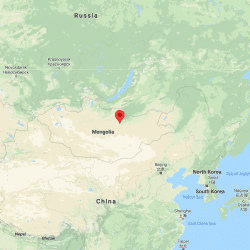Context
Mongolia is a landlocked country between Russia in the north and China in the south, with particularly difficult climate conditions. In the winter, the temperature can drop to minus 40°C in some areas, while in the summer, the heat can be unbearable, exceeding 40°C.
Almost half of the country’s population – 3 million people – live in the capital. Rural-urban migration is a major problem in Mongolia, generating entire neighborhoods made out of yurts on the outskirts of Oulan-Bator. Unfortunately, migrants have very few job opportunities and live in extremely precarious sanitary conditions.
According to the Mongolian National Statistics Office, in 2018, 29.6% of Mongolians were poor according to the national poverty line. An additional 15% of the total population is just above the national poverty line, at risk of falling into poverty in the event of unforeseen shocks, such as COVID-19, which let to successive periods of strict containment. It should also be noted that all schools were closed for two years, with serious consequences for many children. Furthermore, seven out of ten poor people did not have access to any of the basic infrastructure services (improved drinking water, sanitation, or a sustainable heat source).
FXB in action
The aïmag of Dornogovi, a province located in the southeastern part of the Gobi Desert, is limited to a vast, flat and desolate area. 23.2% of its 67,000 inhabitants live in great poverty, with an unemployment rate of 68%. The majority of the families, both nomadic and sedentary, depend on breeding (goats, sheep, cows, horses and camels).
The main challenges they face are very low employment opportunities, unsustainable sources of income, limited access to services and vocational training opportunities, drop out, isolation, limited access to the capital necessary for the development of microenterprises and very low knowledge in terms of comprehensive financial information. Lack of hope, alcoholism and unsanitary housing, especially yurts, are also major problems.
Our main objective is to help families in this desertic region create or seize opportunities where they live rather than migrate to the city of Oulan-Bator.
FXB has already led two VillageFXB economic and community development projects there, which have helped to significantly improve the quality of life of a thousand adults and children.

